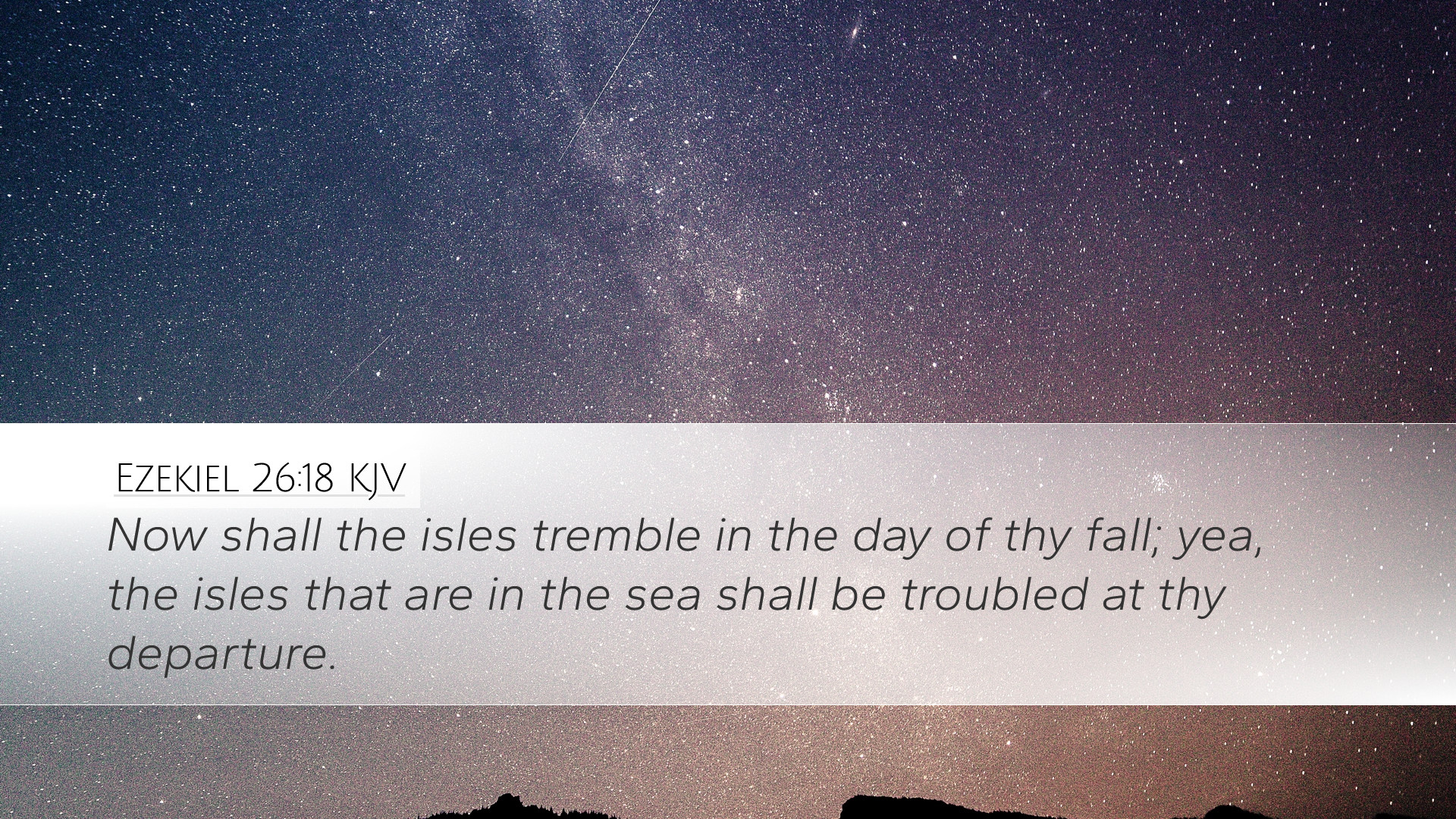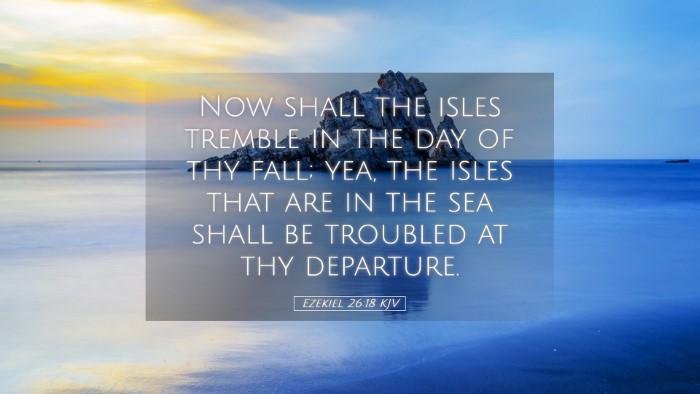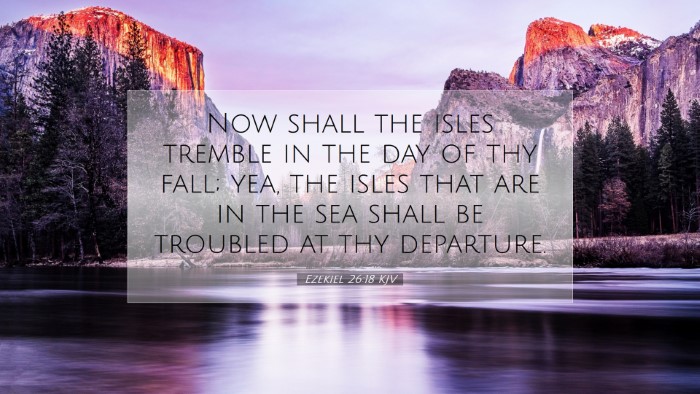Ezekiel 26:18 - Commentary Summary
Verse Context: Ezekiel 26:18 states, "Now the coast shall tremble on the day of your fall; the islands that are in the sea shall be troubled at your departure.'" This verse is situated within the broader context of Ezekiel's prophecies against Tyre, a significant Phoenician city known for its wealth and trade.
Overview of Tyre's Judgment
The prophecy against Tyre is a pivotal aspect of Ezekiel's messages, highlighting God's judgment against pride and the consequences of a city that has, for too long, stood in opposition to Him.
Significance in Biblical Tradition
- Prosperity and Pride: Tyre was renowned for its commercial success and maritime strength, often viewed as a symbol of pride and arrogance in the ancient world.
- Idolatry and Rebellion: The people of Tyre engaged in idolatry, further inciting the judgment of God as described in the prophetic literature.
Analysis of Ezekiel 26:18
Fear and Trembling: When God decrees the fall of Tyre, the resultant fear reverberates throughout the maritime regions. This illustrates the interconnectedness of nations and the far-reaching consequences of divine judgment.
Insights from Public Domain Commentaries
Matthew Henry's Commentary: Henry emphasizes the psychological impact of Tyre's destruction on neighboring islands. The phrase "the coast shall tremble" denotes not only a literal shaking of the land but also a metaphorical shaking of confidence among allied nations, reflecting their vulnerability in the face of God's judgment.
Albert Barnes' Commentary: Barnes points out that Tyre's downfall would create a ripple effect across the Mediterranean region, as the island nations relied heavily on Tyre for trade and commerce. The mention of "troubled" implies deep unrest, reflecting the loss of economic and political stability they held by association with Tyre.
Adam Clarke's Commentary: Clarke offers an historical perspective noting that Tyre’s significant position made its fall a prominent event in history. He suggests that the warning given to Tyre serves as a caution to all nations against hubris and the neglect of divine authority.
Theological Implications
The themes present in Ezekiel 26:18 resonate within broader theological discourses, particularly concerning God's sovereignty, justice, and the nature of prophetic warnings.
Divine Sovereignty
- God as Ruler of Nations: The verse accentuates that God holds ultimate authority over all nations, capable of raising them or bringing them low according to His will.
- Fulfillment of Prophecy: The certainty of the prophecy’s fulfillment demonstrates God's commitment to His word and serves as a reminder of His omnipotence.
Impact on Contemporary Believers
For modern-day believers, this passage invites reflection on national conduct and the ramifications of collective sinfulness. The harsh lesson from Tyre encourages a deeper understanding of righteousness and the importance of aligning with God’s will.
Conclusion
In summary, Ezekiel 26:18 serves as a powerful reminder of the gravity of divine judgment and the implications of pride and idolatry within nations. Through the insights gleaned from esteemed commentaries, it becomes evident that the fall of Tyre is not merely a historical event but a timeless lesson on the need for humility before the Almighty.


